Intro & Graphics Lag
Note that this is an archived copy of the original article. Please see here for a more detailed explanation.
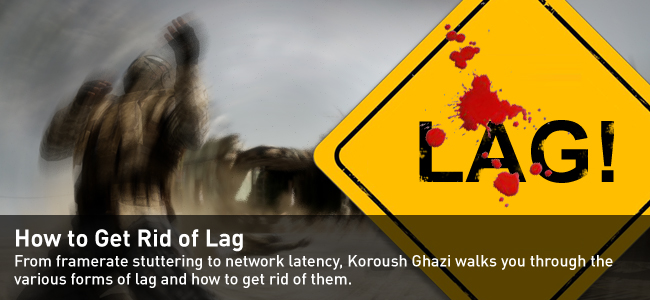
Introduction
You might be playing Black Ops, Bad Company 2 or Team Fortress 2 online; or maybe you're ploughing your way through enemies in Crysis 2, Fallout: New Vegas or GTA IV. It doesn't matter what the game is, or whether you're playing multiplayer or singleplayer - at some point the dreaded word Lag will be used. That one word sums up a world of frustration for PC gamers everywhere. But what exactly causes this periodic lack of responsiveness in a game? Is there any way to get rid of it, or at least reduce it? Let's get to the bottom of this annoying phenomenon.
One Word, Many Causes
Right off the bat, the word "lag" itself is a problem. Why? Because it's a general term and not particularly descriptive. Sure, we all know that lag refers to some kind of slowdown or reduced responsiveness during a game, but we need to get more specific. There are multiple causes of lag, so let's cover the symptoms and solutions for each one of them.
Graphics Lag
The granddaddy of all lag, this is the result of a general slowdown in graphics, and is a common occurrence for any gamer. Basically, your system just can't produce enough Frames Per Second (FPS) to make everything feel nice and smooth. Anytime graphics lag happens, you'll typically get a reduction in the responsiveness of your controls. Your actions take a fraction longer to be reflected in the graphics on-screen because it takes your system a bit more time to create each new frame of graphics and send it to your monitor.
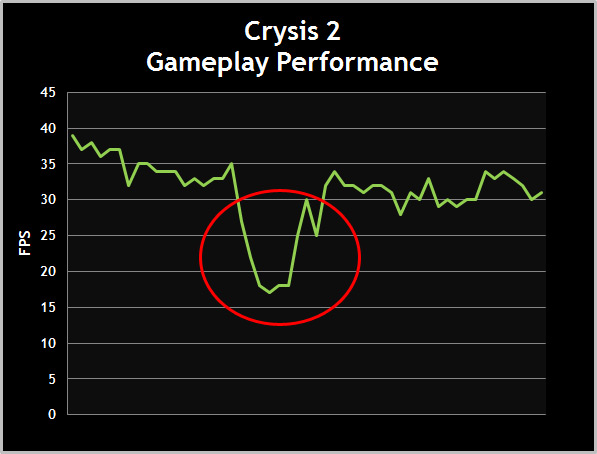
This sudden drop in FPS is guaranteed to cause some lag
Example: You've just turned the corner into a courtyard where several guys are firing away, maybe a smoke grenade is going off nearby, and there's an explosion or two for good measure. Frustratingly, you get plugged before your character can react in time. You know you haven't gone soft, it's that damn lag!
Solution: But how can you be sure that it's graphics lag that's causing your problem? Get scientific and use the free FRAPS utility to measure your actual framerate. Launch FRAPS before starting up your game, and look at the FPS figure it provides when you're in the game. Any time that little yellow counter drops below around 25-30 FPS or so, especially in fast-paced games, you're going to feel some amount of graphics lag. If it drops below around 15-20 FPS then you'll really feel it. If you're getting serious framerate dips, then there are only two solutions.
The first is to customize your game's graphics settings and optimize Windows so that you consistently get higher FPS. Here's what you need to do just that:
Game Guides:
Optimal Playable Settings:
Windows Optimization Guide:
Certain game settings affect performance more than others. Settings like antialiasing and ambient occlusion for example can reduce your framerate significantly. If your framerate is choppy, try turning them off. If you are heavily pressed for performance, reduce the graphics resolution.
Pay particular attention to raising your minimum FPS. There's no point running around with 100 FPS most of the time if your framerate crashes down to the low teens during heavy combat.
The second is tougher on the wallet, but at some point you'll realize that no amount of optimization can help you if your system just isn't up to the task; you need to upgrade your hardware. For graphics lag, the most important update is a new and more powerful graphics card. Check the performance charts in the Optimal Playable Settings and Game Guides links above to get an indication of what type of card will give you the FPS you're after at particular settings in different games.
 Previous
Previous
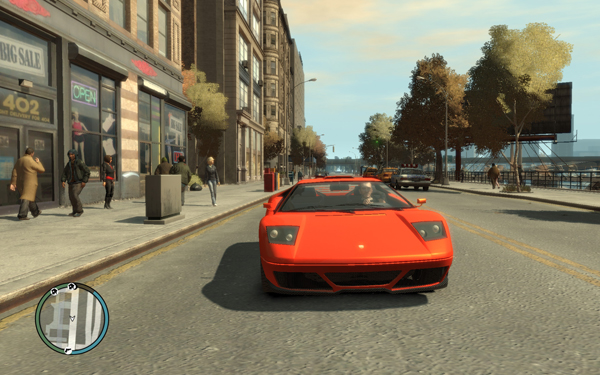

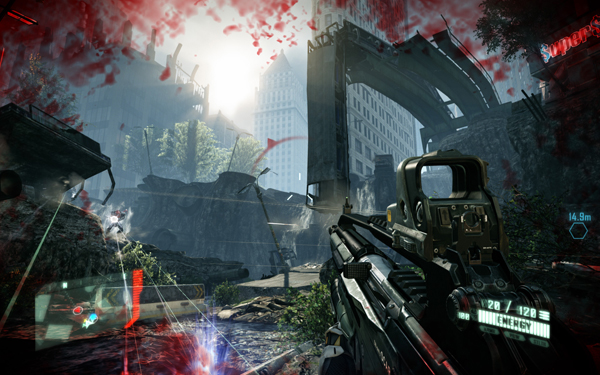
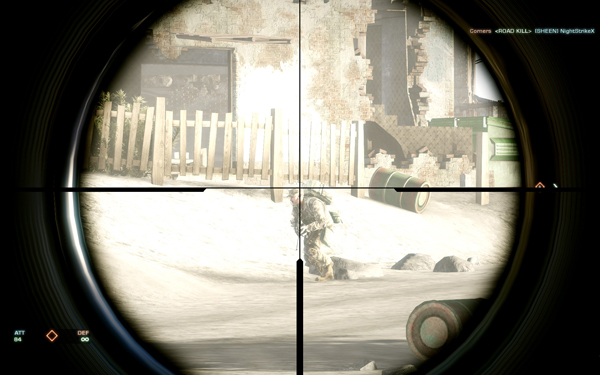

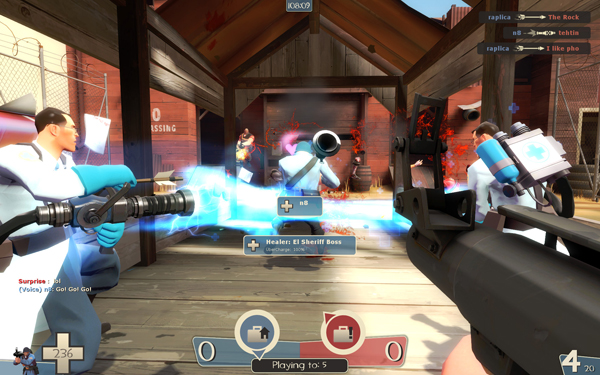
Comments
This comment section is currently disabled. Click here to enable comments and load all Disqus related resources
Please note that by enabling and loading these Disqus resources, you are agreeing to allow everything that comes with a Disqus comment section, including their cookies and all scripting.
This comment section is currently enabled. Click here to disable comments and unload all Disqus related resources
Please note that I have absolutely zero control over this comment section. It is still administered entirely by Nvidia themselves. I have no moderation power whatsoever and don't necessarily endorse any of the comments posted here. In fact, I don't believe this comment section adds much value to the article to begin with but included it only because it existed on the original.